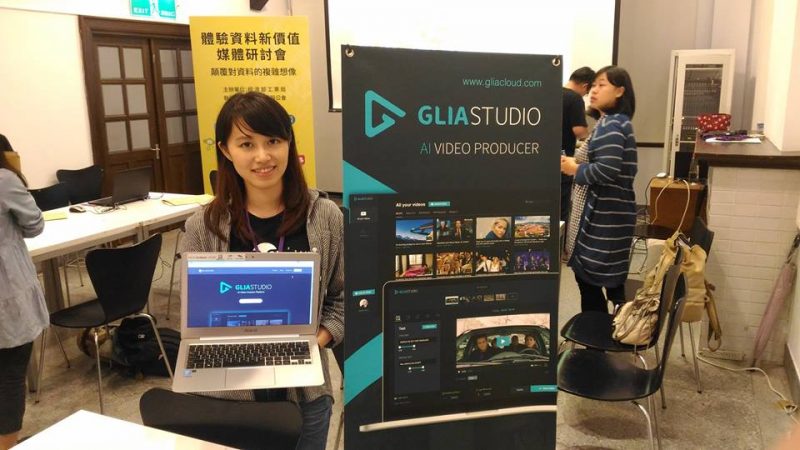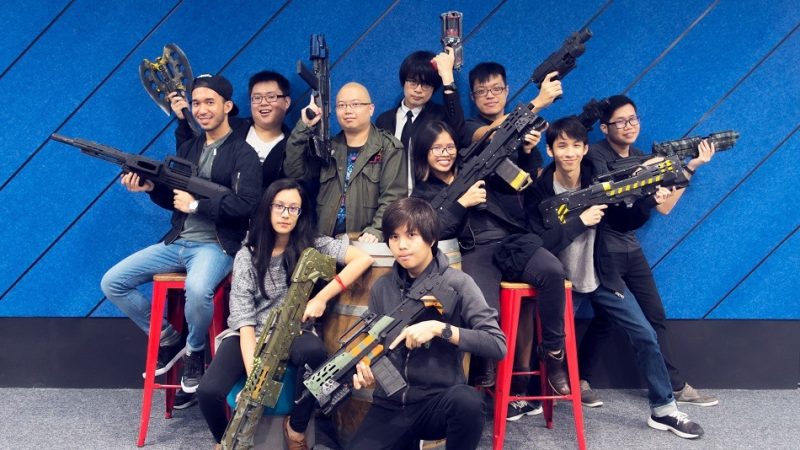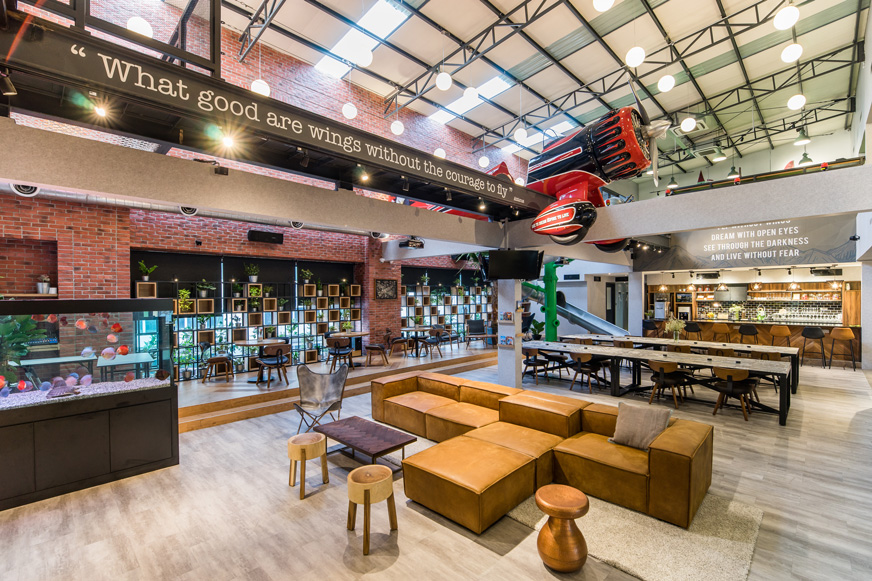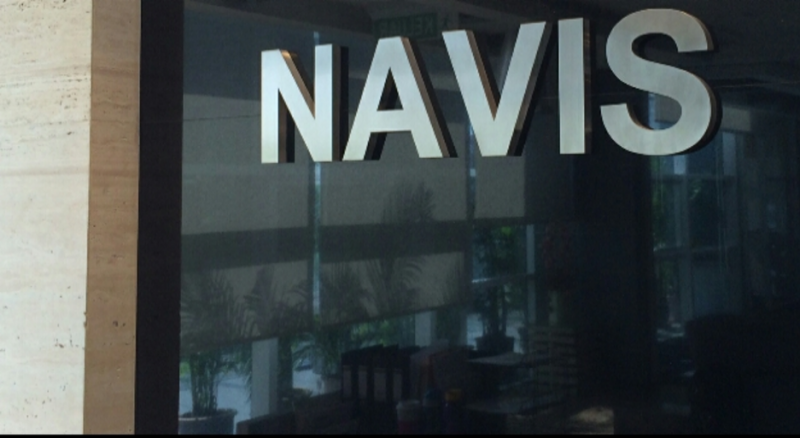Year: 2017
GliaCloud is raising US$500K seed funding to create video from text
GliaCloud, an AI video creation startup based in Taiwan said it has secured a US$500,000 seed funding. The round was led by Infinity Venture Partners (IVP) with participation from several unnamed angel investors.
The startup’s product, GliaStudio uses natural language processing, data analytics, and artificial intelligence to automatically create video via text.
Users simply need to provide their content in text, and the platform will automatically edit relevant images and video clips, as well as dubbing over it to create a video.
GliaStudio is available in English, Chinese, and Japanese as it targets e-commerce platforms and merchants as well as media companies in Greater China and Japan.
So far, the startup has partnered with 10 media companies in the Greater China region including Toutiao, the Chinese news curating app and BusinessNext, the Taiwanese leading tech news media to generate more than 1000 video clips each day.
Founded in July 2015 by Taiwanese Canadian entrepreneur David Chen, GliaCloud aims to corner the market on the new necessity in media and content development which uses video.
With video content being prevalent to dominate mobile and social media traffic, GliaStudio plays a significant role in helping online publishers to reach their audiences without making huge investments.
Moreover, with this funding having Japan-based IVP participate in as an investor, further massive expansion into the Japanese market is to be expected.
Last year, the company won the Aliyun Award at the Tech in Asia Singapore startup competition.
Singaporean Game Studio BattleBrew Productions secures undisclosed angel funding
BattleBrew Productions, a new game developer based in Singapore announced that it has raised its first angel funding from Emerio’s CEO Harish Nim.
Similarly based in Singapore, Emerio Corp is an IT service provider that is a subsidiary company of NTT-Docomo, one of Japan’s largest telco operator.
The funding amount was undisclosed but BattleBrew will use the newly-raised capital to fund the development of its first game under the working title Wyldeweavers. It is said to be a free-to-play mobile strategy game for the iOS and Android platforms.
Launched earlier in February 2017, BattleBrew is made up by a team of 12 veteran game developers from Singapore, including Benjamin Chua, Louis Cua, and Greyson He who have previously worked at Ubisoft, developing triple AAA titles such as the Assassin’s Creed series.
Meanwhile, other members of the team have also worked in big-name gaming companies such as Gameloft and Sea (previously known as Garena).
Leading the team is CEO Shawn Toh who has worked as the game designer for Nubee and Gumi Asia, as well as being the associated producer at the Game Lab of the Singapore University of Technology and Design.
“The industry is pretty close-knit, so once we had an idea for a game we really wanted to work on, it was an easy decision. We have a lot more ownership in what we make, especially for the guys or girls who came from triple-A studios,” Toh explained.
The team is also supported by Elicia Lee, the founder of Singapore gaming convention GameStart Asia and Ian Gregory Tan, the creative director of Witching Hour Studios which became a crowdfunding sensation with its RPG title Masquerada: Songs and Shadows.
On the other hand, there has also been a rise of immersive VR entertainment in Southeast Asia’s gaming scene. In June, Havson group has introduced EXA Outpost, the first hyper-reality gaming theme park in Malaysia.
Temasek takes 30% stake in Italian fashion brand Stone Island
Singapore’s sovereign wealth fund Temasek is set to acquire a 30 percent stake in Italian fashion retailer Stone Island, according to its parent firm Sportswear Company S.p.A.
Financial terms of the transaction were not disclosed, but it is understood that the capital will help the men’s sportswear brand to expand its reach internationally.
“I am truly satisfied for this partnership with one of the world’s most established investment companies,” said the Sportswear Company’s founder Carlo Rivetti. “I particularly appreciate Temasek’s investment strategy to participate in companies with strong growth potential, know-hows, and identity.”
For Temasek, this comes at a time when its divestment is outpacing its investment. Increasingly, the firm is under pressure for higher investment returns which has led it to make larger bets and adding more unlisted stocks to its portfolio.
However, this is not the first fashion investment for the company. Last year, Temasek has participated in the US$110 million Series F funding round for Farfetch, as well as acquired a 26.8 percent stake in Italian fashion firm Moncler.
Founded in 1982 by Massimo Osti, Stone Island’s famous jackets were the result of an experiment of creating the fabric for military jackets. The company was acquired in 1983 by Rivetti’s family firm GFT which was one of the largest apparel manufacturers in Italy.
It later became Sportswear Company and developed its brand Stone Island to become a mixture of technical wear, high-fashion, and streetwear. The company even has collaborations with Supreme and Nike, as well as stockists like Kith.
Meanwhile, the company reports revenues for 2016 to be €109 million (about US$129 million ), that is a 26 percent increase compared to last year at €87 million (about US$97 million)
With this acquisition, Temasek agrees to guarantee the continuity and the autonomy of the Stone Island management team, which according to Rivetti is essential to successfully face and overcome the challenges for the fashion sectors.
“I wanted to both capitalize on the work done in 35 years and to team with a partner to face the increasingly complex opportunities proposed by the markets,” Rivetti explained.
“I am confident that the brand Stone Island will keep on with increased success its development, being able to count on a competent and attentive partner to the specifics of our business and with strong international relations,” he added.
CO3, Probably South East Asia’s Coolest Office Launched in Malaysia
Malaysia based co-working space startup CO3 Social Office officially launched their first office location in Puchong, Malaysia today. The opening of the Puchong office marks the completion of the first out of five offices the company had planned.
Early this year, the startup revealed their ideology in Connexion at Nexus, Bangsar South. During the 1,500 people event, the team from CO3 presented their plan to deliver the “coolest office in Malaysia” by June 2017. In the same event, they had also announced the plan to open 5 offices in 12 months.
“We have said it, now we have done it”, said Yong Chen Hui, Founder & CEO of CO3 Social Office. “The journey wasn’t easy but our aspiration took us here.”
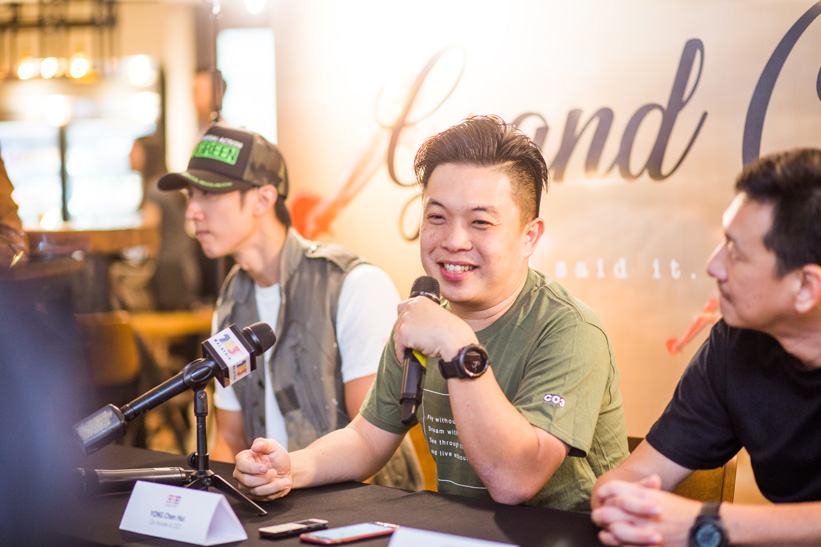
“We have said it, now we have done it”, said Yong, CEO of CO3
In celebration of the first workspace opening, the team organised a weeklong celebration including two housewarmings, a grand opening ceremony, and an exclusive social gathering with Bruneian artist Goh Kiat Chun or better known as Wu Chun. Now a full-time entrepreneur, the ex-singer Wu Chun is the non-executive director of the newly launched co-working space. As part of the weeklong celebration, the 44-year-old entrepreneur shared his rich experiences in entrepreneurship with a group of young influencers.
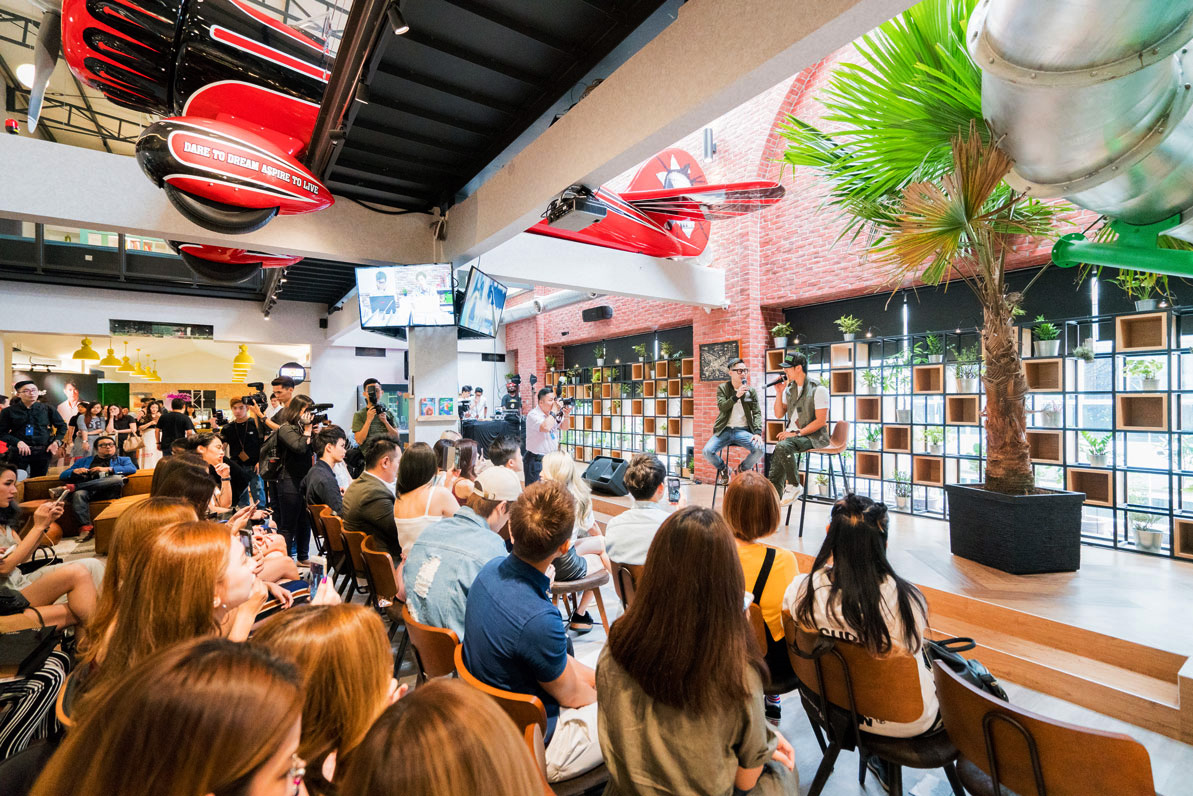
Wu Zun, one of CO3 co-founders having a sharing session with Malaysia's top social media influencers
When asked about the differentiating factors that set CO3 apart from the existing co-working offices in the region, Yong brought up an interesting point. The “heartware” he said. He explained that besides the hardware (the facilities) and the software (the mentor supports and business networks) which almost every co-working office provides, CO3 social office is promoting an intangible spirit called the “heartware”.
It’s made up of 3 key elements namely freedom, dignity, and trust. “We allow ideas to travel freely within this space, we promote the concept of same rank where everyone has their own space, and we want to build trust within the members,” he added.

The spirit of CO3 is to allow free travel of ideas between the members
Further embodying the spirit of “heartware”, this co-working space allows flexible leasing for as short as a month and an adopted honor system for the food and beverages in the workspace. Additionally, all the net proceeds from the honor system will be donated to charitable causes.
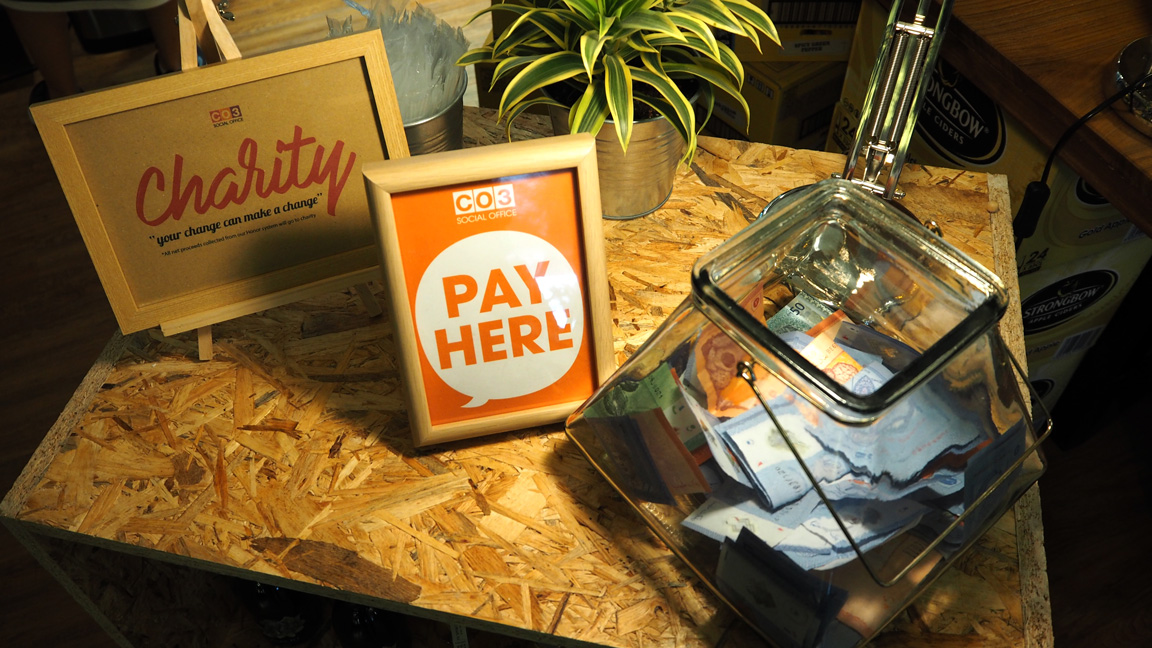
Built upon CO3’s honor system, members pay for their food and beverages without any supervision.
With millennials slowly taking over the workforce, talent attraction and retention is more challenging than ever. Hence the company is confident that augmenting the importance of human-centric “heartware” will be an alternative solution to talent retention.
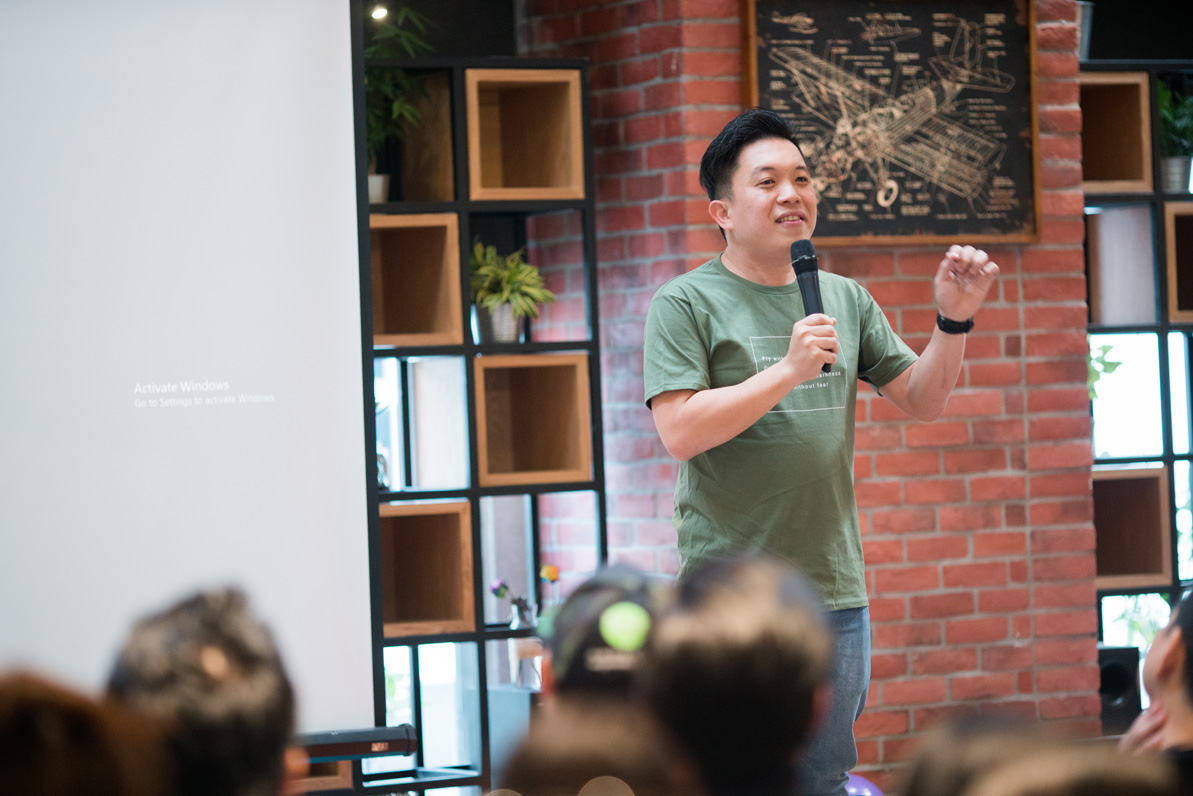
Yong giving a speech on the importance of "Heartware".
CO3 Social Office also positioned itself as a unique concept that can be implemented in existing corporate environments and real-estate locations, improving their appeal to the new generation of white collar professionals, on top of optimising the utilisation of their existing assets.
Jeff Ong, Executive Director of CO3 explained that many offices have unutilised real estates like meeting rooms or under-utilised real estates like manager rooms. Co-working space helps companies to turn these real estate cost into revenue.
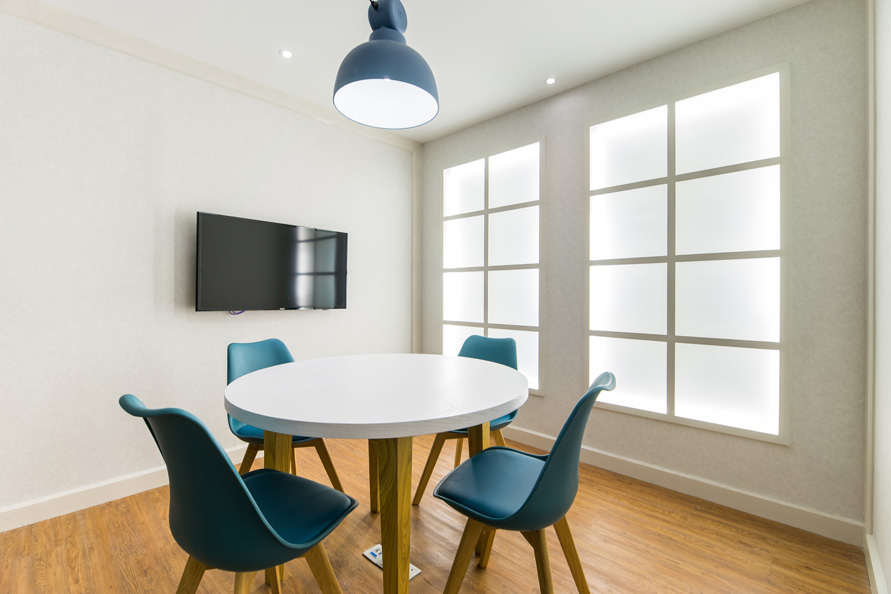
CO3 maximizes the value of real estates by having shared meeting rooms, brainstorm area, and other facilities among the members.
On the day of the launch, Yong also revealed that the 22,000 sq feet working space has achieved more than 80% occupancy, with 200 members from various professions including the legal, corporate secretary, production house, event, media, and tech startup industries. CO3 Social Office is not just the coolest office in Malaysia, but it’s also the largest of its kind in the region. Believing in the concept of constant growth, the team had planned to outdo their current accomplishment. Yong stated that this first office is built to prove the concept of co-working area in Malaysia. Ready to achieve their next goal, they are eyeing their second location which will take up 80,000 sq feet in a 5 storey building. The location is 4 times larger than its predecessor and is said to be along Jalan Semangat. When asked about the remaining 3 locations, Yong explained that scouting process is ongoing. Though the exact locations are not finalised, the team is looking to complete these locations by Q2 2018.
More shots of CO3 Social Office:
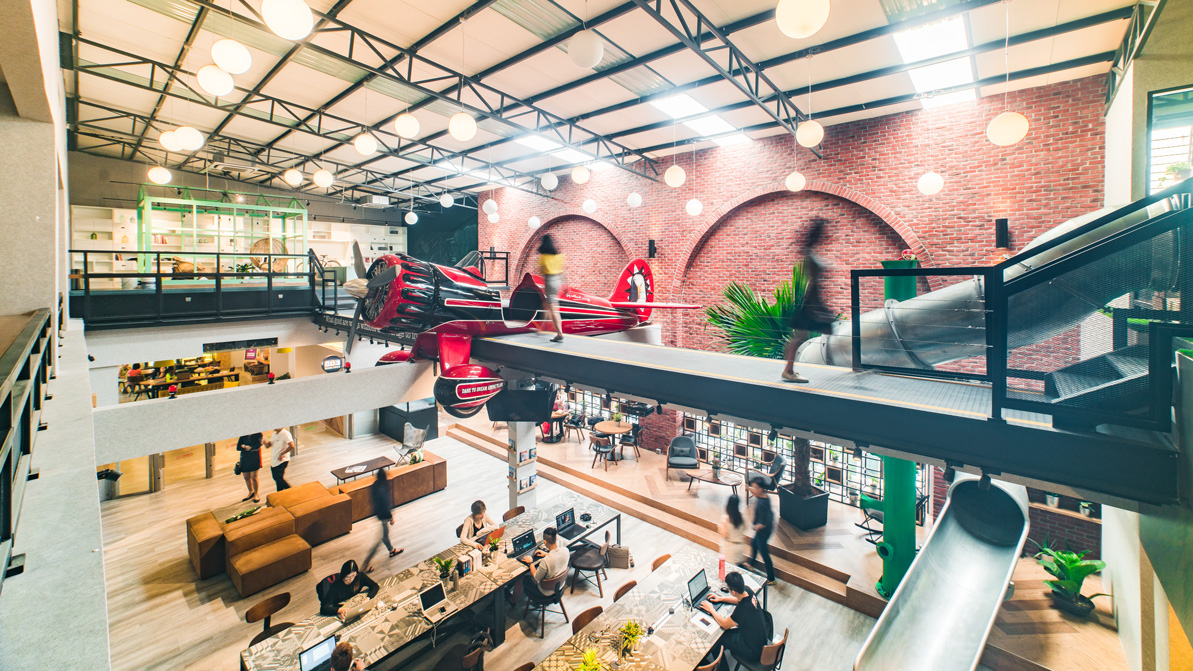
A bright red plane in the middle of the office to usher the members TO FLY.
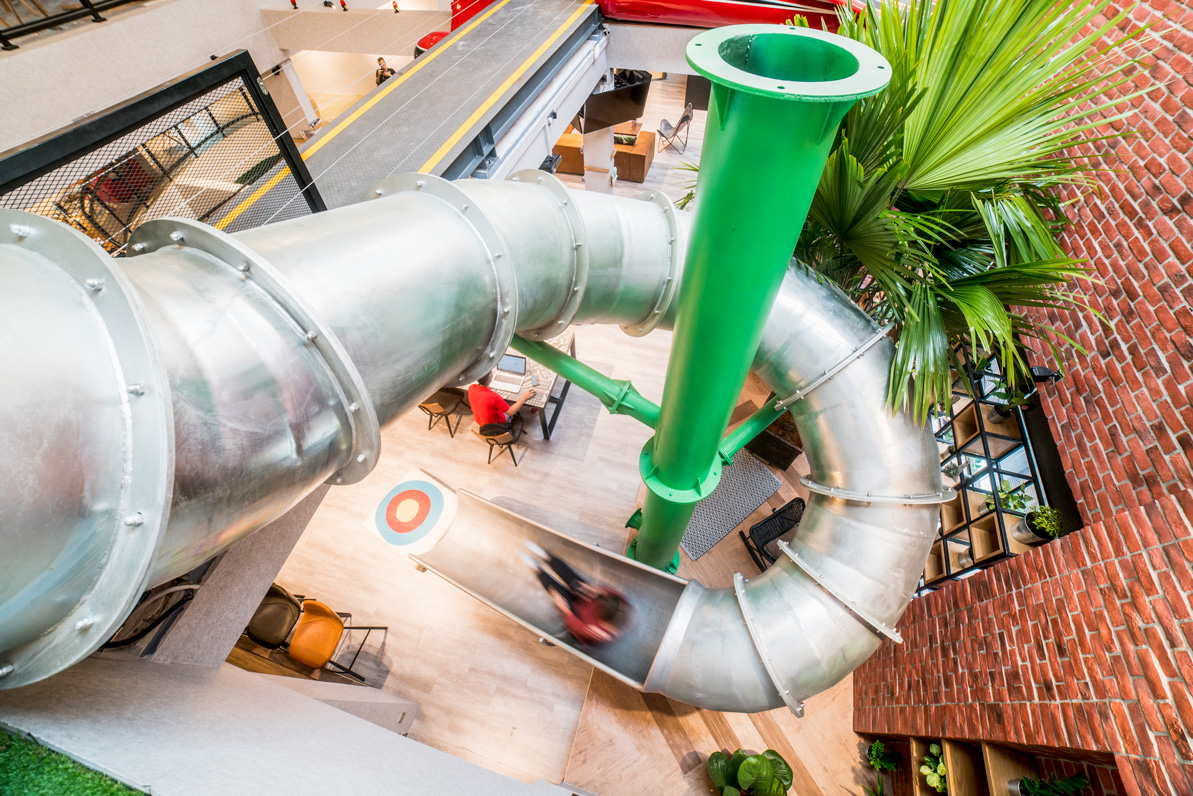
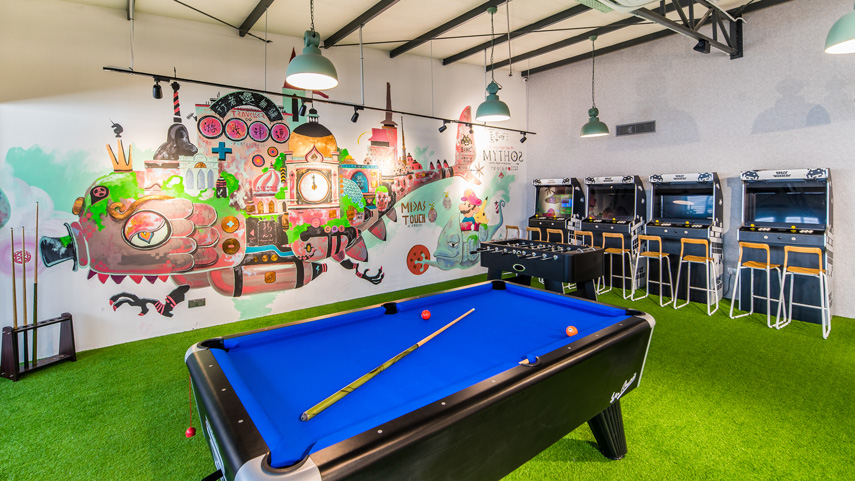
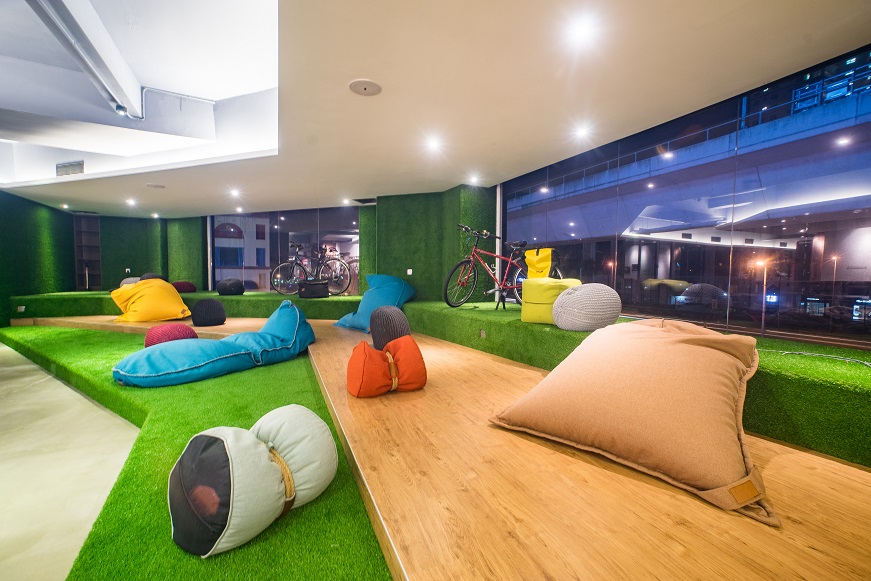
CO3 comes with an assortment of entertainment & relaxation facilites.

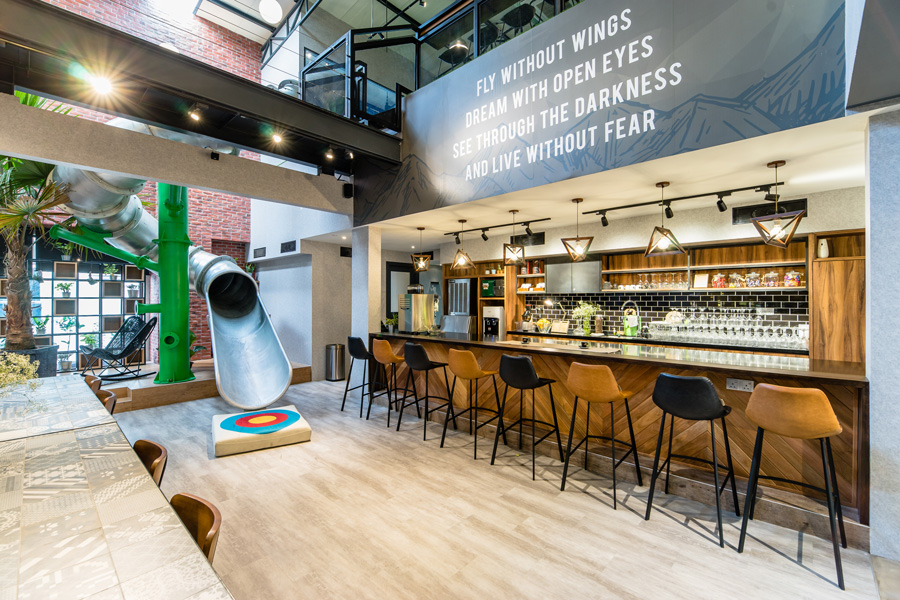
No short of good foods & beverages in the premise.
For more information, please visit http://co3.co
—————————————————-
A special report by PRWIRE Asia.
]]>
Navis to raise up to US$2 billion in eighth fund
Southeast Asia’s leading PE firm Navis Capital Partners is set to launch its eighth fund in 2018. The vehicle will be significantly larger than the firm’s current fund Navis VII worth US$1.5 billion.
According to Navis, its seventh fund is currently in its third and final year at 70 percent drawn – a stage where most PE players have started to actively plan their new successor fund.
But so far no plans have been finalized for the size or timing of a successor fund, though the firm is said to be looking to raise up to US$2 billion for its next fund.
As an investor with a large presence in Southeast Asia and Australia, Navis focuses on building a portfolio related to food processing, restaurant dining, manufacturing, fast-moving consumer goods, outdoor advertising, auto rentals, consultancy, healthcare, and professional business services.
The Kuala Lumpur-based firm has invested in Chinese restaurant chain Imperial Treasure, Indonesian medical equipment distributor Tawada Healthcare, Vietnam’s Hanoi French Hospital and furniture and lifestyle brand Christian Liaigre, among some.
With Navis VIII, the PE firm plans for smaller investments below US$50 million to further extend its investments into the region. These investments in the range of US$10 million to US$50 million, which Venture Capital firms often find too big and Private Equity players find too small, can work to fill the requirements for certain players.
The firm’s exits for this year include the divestment of its controlling stake in retail apparel South Africa’s The Foschini Group to Australia’s Retail Apparel Group (RAG) in a deal worth US$225 million. The firm also sold its interest in Guardian Early Learning Group, a child care business operating a network of 71 child care centers across Australia, to funds managed and advised by Partners Group.
Navis Partners Capital currently manages several private and public equity funds totaling to US$5 billion in equity capital and has made more than 70 controlling investments since its inception.
It has one of the largest private equity professional teams in Asia, consisting over 60 individuals and supported by over 30 administrative staff in eight offices across the region.

